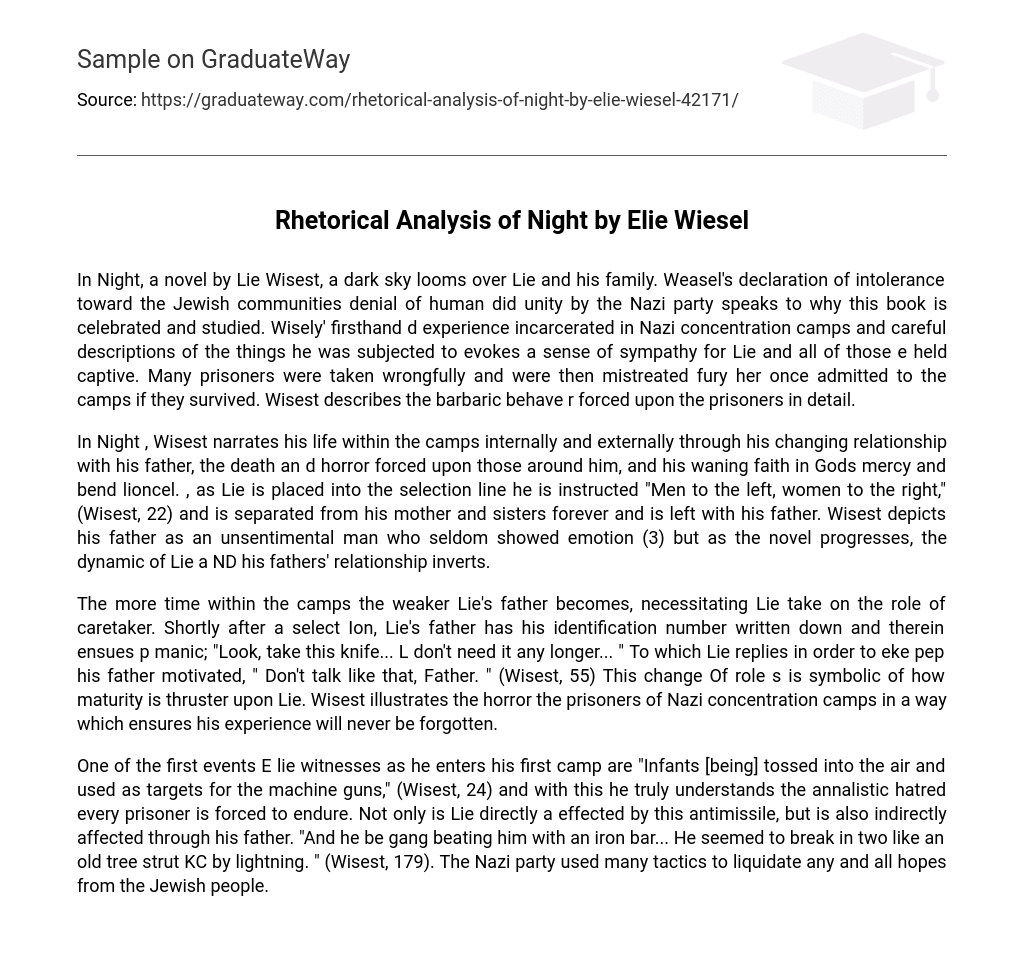In Night, a novel by Lie Wisest, a dark sky looms over Lie and his family. Weasel’s declaration of intolerance toward the Jewish communities denial of human did unity by the Nazi party speaks to why this book is celebrated and studied. Wisely’ firsthand d experience incarcerated in Nazi concentration camps and careful descriptions of the things he was subjected to evokes a sense of sympathy for Lie and all of those e held captive. Many prisoners were taken wrongfully and were then mistreated fury her once admitted to the camps if they survived. Wisest describes the barbaric behave r forced upon the prisoners in detail.
In Night , Wisest narrates his life within the camps internally and externally through his changing relationship with his father, the death an d horror forced upon those around him, and his waning faith in Gods mercy and bend lioncel. , as Lie is placed into the selection line he is instructed “Men to the left, women to the right,” (Wisest, 22) and is separated from his mother and sisters forever and is left with his father. Wisest depicts his father as an unsentimental man who seldom showed emotion (3) but as the novel progresses, the dynamic of Lie a ND his fathers’ relationship inverts.
The more time within the camps the weaker Lie’s father becomes, necessitating Lie take on the role of caretaker. Shortly after a select Ion, Lie’s father has his identification number written down and therein ensues p manic; “Look, take this knife… L don’t need it any longer… ” To which Lie replies in order to eke pep his father motivated, ” Don’t talk like that, Father. ” (Wisest, 55) This change Of role s is symbolic of how maturity is thruster upon Lie. Wisest illustrates the horror the prisoners of Nazi concentration camps in a way which ensures his experience will never be forgotten.
One of the first events E lie witnesses as he enters his first camp are “Infants [being] tossed into the air and used as targets for the machine guns,” (Wisest, 24) and with this he truly understands the annalistic hatred every prisoner is forced to endure. Not only is Lie directly a effected by this antimissile, but is also indirectly affected through his father. “And he be gang beating him with an iron bar… He seemed to break in two like an old tree strut KC by lightning. ” (Wisest, 179). The Nazi party used many tactics to liquidate any and all hopes from the Jewish people.





